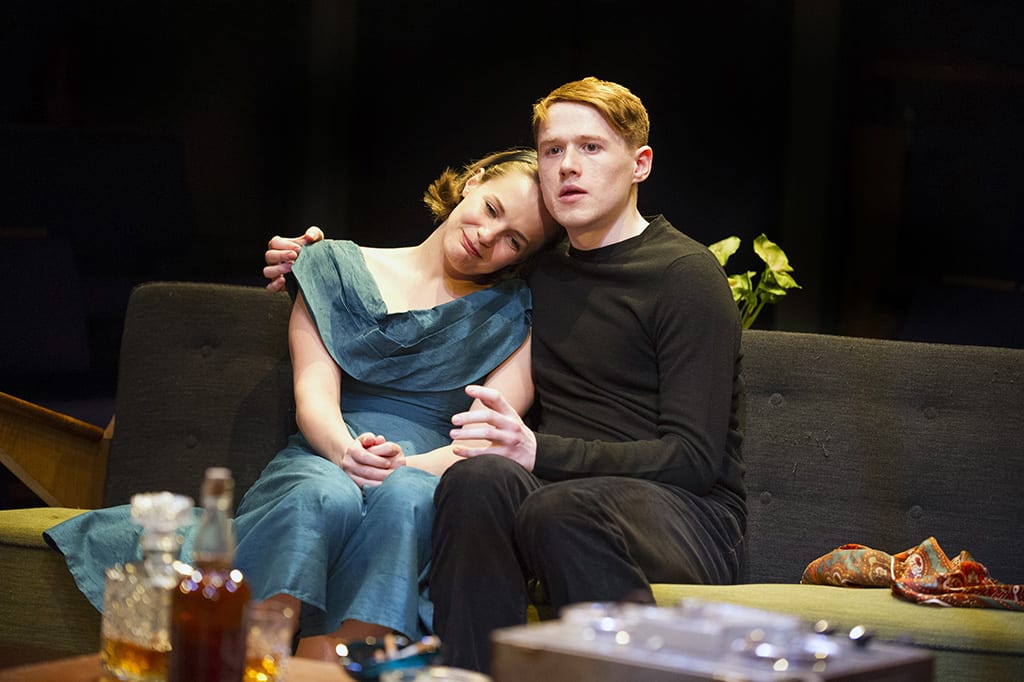Doris Lessing arrived in London from Africa in 1949; accompanied by her young son, £20 and the manuscript for her novel, The Grass is Singing. Lessing wrote prolifically throughout the following decade, publishing five novels, two short-story collections and a memoir. Each His Own Wilderness was first staged by The Royal Court at the end of this bountiful decade in 1958. Four years later Lessing published The Golden Notebook, an excellent novel which cemented her place in literary history.
Fast forward almost half a century and The Orange Tree Theatre offers a rare and exciting opportunity to watch Lessing’s play. The play by no means represents Lessing’s abilities at their pinnacle. However it certainly offers an intriguing insight into the style, motifs and themes which would ebb below the surface of the author’s works throughout her dazzling career. The play opens upon the return of a young man, Tony after completing two years national service. Tony is played by the recent RADA graduate Joel MacCormack, whose expert performance encapsulates the tired, sceptical and weary outlook of many young males in the post-war period. Tony wishes to settle down and live a ‘normal’ and peaceful life.
In contrast, Tony’s mother Myra is an unrelentingly fierce political activist and social bohemian. Played equally brilliantly by Clare Holman, Myra entertains a series of houseguests made up from political radicals and a set of lovers, young and old. The entire play is set in the family’s sitting room. The setting is aptly fitted with beige furniture, a decanter of whisky and its floor covered by sprawl of political pamphlets. Thus, encapsulating and engaging with the tension between the domestic and political lives of thousands of women throughout the decade. Tony and Myra remain at fierce loggerheads with one another throughout, and through their characterisation Lessing explores the spirits of the political landscape of the decade.
Initially, the exchanges of dialogue are rapid, ferociously sharp and quick-witted. The first-half of the play evokes a sense of intriguing anticipation by the time we reach the interval. Through the second half, the introduction of several characters in an intermingled web of love affairs attempts to expose and dissolve social taboos. Unfortunately, the play gradually drifts away from the powerful subtlety which had preserved the first-half as a success. Director Paul Miller appears to have struggled in maintaining the dramatic energy throughout a play which extends well beyond two hours in length. Despite a series of enthralling personal performances in Each His Own Wilderness, the play’s climax evokes a sense of audience relief. Its nosedive into chaos is not hugely effective, undoing much of the craftsmanship of the first hour.
Nevertheless, The Orange Tree Theatre’s endeavour to stage Each His Own Wilderness is a credit to their progressive and refreshing approach to drama. Fans of Lessing and the other British realist playwrights of the 1950s should certainly watch the show. Not solely for a way of developing a greater understanding of Lessing as a writer, but also to support the theatre itself. On the first day in which artistic director Paul Miller took charge, the venue had its Arts Council funding completely cut. It is a great shame for a venue which continues to promise something fresh and innovative for the London scene.




